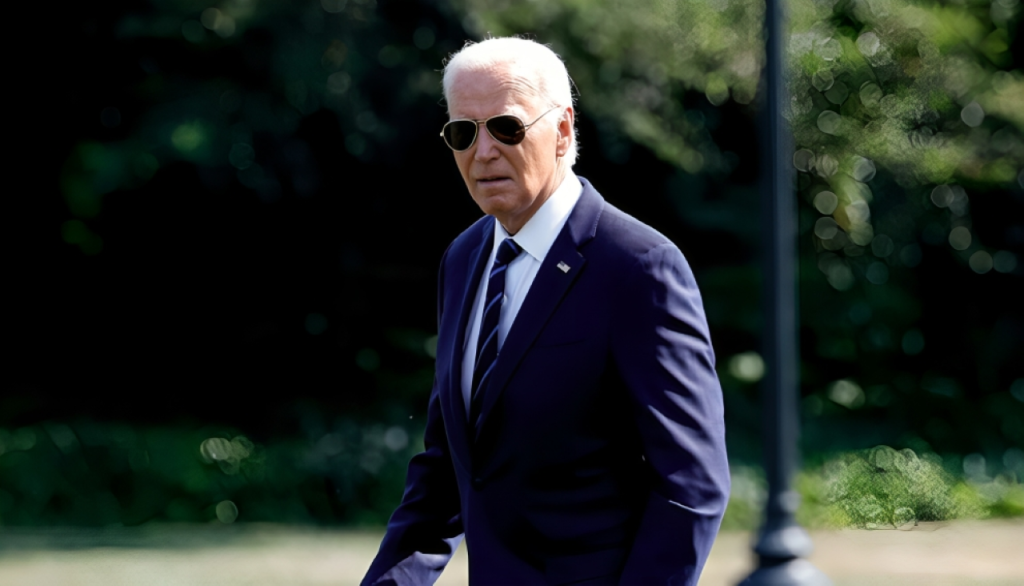US President Joe Biden has tested positive for Covid-19 for a second time and has returned to isolation, his White House physician confirmed on Saturday. The diagnosis has been attributed to “rebound” positivity following his treatment with the antiviral drug Paxlovid.
Second Positive Test Following Consecutive Negatives
According to a memorandum from presidential physician Kevin O’Connor, Biden tested positive late on Saturday morning through antigen testing. This result came after four consecutive days of negative tests, prompting the reinstatement of strict isolation protocols.
“This, in fact, represents ‘rebound’ positivity,” stated Dr O’Connor, referring to cases where patients treated with Paxlovid initially clear the virus but subsequently test positive again. Despite this, the president has exhibited no resurgence of symptoms and continues to feel well, eliminating the need for further treatment at present.
Biden’s Response and Travel Cancellations
In response to his diagnosis, Biden took to social media to reassure the public.
“Folks, today I tested positive for Covid again. This happens with a small minority of people. I’ve got no symptoms, but I am going to isolate for the safety of everyone around me. I’m still at work and will be back on the road soon,” he wrote.
As a result, planned trips to Delaware and Michigan have been cancelled, the White House confirmed.
A Conscientious Approach to Health Protocols
The positive test came merely three days after Biden was declared negative and had completed his initial isolation, which began following his first positive result on 21 July. Dr O’Connor emphasised that Biden has been particularly diligent in adhering to Covid safety measures, unlike his predecessor, Donald Trump, who was frequently dismissive of such precautions.
“The President continues to be very specifically conscientious to protect any Executive Residence, White House, Secret Service, and other staff whose duties require any (albeit socially distanced) proximity to him,” O’Connor stated.
Biden, who will turn 80 in November, is the oldest sitting US president, and his health remains a subject of close public scrutiny.
Comparisons to Trump’s Covid Experience
On Wednesday, after completing his initial isolation, Biden appeared energetic and encouraged Americans to take full advantage of free vaccines and treatments. He drew a contrast between his own rapid recovery and Trump’s severe illness in October 2020, which required hospitalisation at Walter Reed Medical Center.
“When my predecessor got Covid, he had to be airlifted to Walter Reed. He was severely ill. Thankfully, he recovered. When I got Covid, I worked from upstairs in the White House,” Biden remarked.
He further stressed the importance of vaccinations, early testing, and treatment with Paxlovid, reiterating that these preventative measures are accessible to all.
Vaccination and Booster Status
Biden has been fully vaccinated and has received two booster shots. Following his first Covid diagnosis, O’Connor had advised that he wear a mask for 10 days when around others and continue regular testing in case of a rebound infection—precautions which have now proven to be well-founded.
The White House maintains that Biden remains in good health overall and continues to carry out his presidential duties while in isolation.
Understanding Paxlovid Rebound Cases
Paxlovid is an antiviral treatment authorised for emergency use in high-risk individuals to reduce the severity of Covid-19 infections. However, in some cases, patients may experience a brief recurrence of viral positivity after completing the medication. Studies suggest that such “rebound” cases occur in a minority of patients and typically do not lead to severe illness.
| Key Facts About Paxlovid Rebound | Details |
|---|---|
| Occurrence Rate | Small minority of patients |
| Symptoms | Typically mild or absent |
| Need for Retreatment | Not usually required |
| Preventative Measures | Continued testing and isolation |
Biden’s case serves as a high-profile example of this phenomenon, further highlighting the importance of continued vigilance even after initial recovery.

